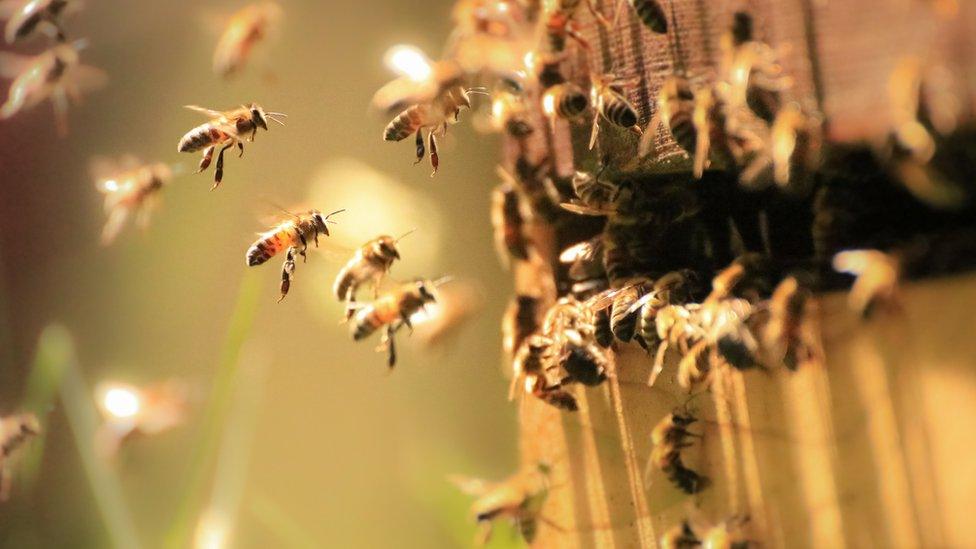Coronavirus: Which other animals 'social distance'?
- Published
- comments

Humans aren't the only creatures who social distance if someone is ill - some animals and insects also do it.
Social distancing means making sure there's enough space between people who are well and those who might be unwell.
The aim of it is to help stop germs spreading, including viruses such as the coronavirus.
And it turns out, other animals have been practicing it for ages!
Professor Alison McAfee from North Carolina State University studies plants and insects.
She said that bees will distance themselves from each other if they know a virus is spreading.
Some bees will even find the infected bee, and push them out of the colony!
Chimpanzees have displayed similar behaviour too.
In 1966 researcher Jane Goodall was studying chimpanzees in Gombe Stream National Park in Africa.
She found that healthy chimpanzees kept away from one unhealthy chimpanzee until he got better again.
Mandrill primates practice this behaviour too.
Professor of biological science, Dana Hawley, said the primates live in large groups in the rainforests of Africa and actively avoid other sick mandrills unless they are close family members.
She also said: "Social distancing can be profoundly disruptive to our society, but it can also stop a disease outbreak in its tracks."
- Published11 March 2020
- Published23 June 2020
